South Bank Sky Arts Awards Winners 2017
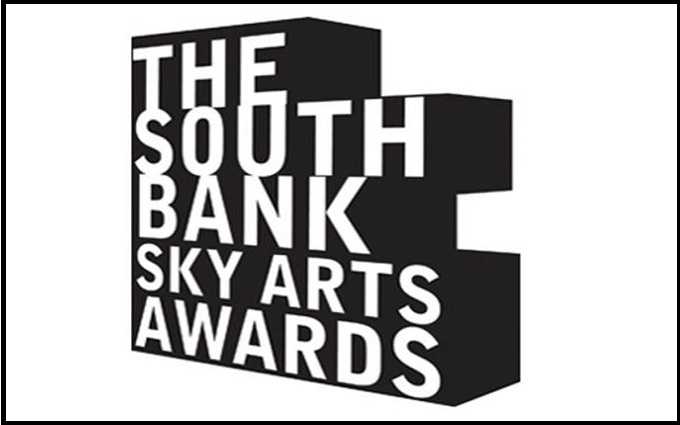
The South Bank Sky Arts Awards Winners 2017 were announced over the weekend and Red Carpet News TV spoke to winners and VIP guests on the red carpet and backstage at the savoy hotel in London . Check out the full winners list below and exclusive video interviews too.
Classical Music
Winner: Philharmonia Orchestra, Stravinsky: Myths & Rituals
Tom Coult, Spirit of the Staircase, London Sinfonietta/Martyn Brabbins
Dunedin Consort, Monteverdi Vespers, Lammermuir
FestivalComedy
Winner: Fleabag, BBC Three
Camping, Sky Atlantic
People Just Do Nothing, BBC Three
Dance
Winner: English National Ballet, Akram Khan’s Giselle
Richard Alston Dance Company, An Italian in Madrid
Northern Ballet, Jane Eyre
Film
Winner: I, Daniel Blake
American Honey
Under the Shadow
Literature
Winner: The Gustav Sonata, Rose Tremain
The Return: Fathers, Sons and the Land In Between, Hisham Matar
Swing Time, Zadie Smith
Opera
Winner: Wagner: Der Ring des Nibelungen (The Ring Cycle), Opera North
4.48 Psychosis, Royal Opera House
Nothing, Glyndebourne Youth Opera
Pop Music
Winner: David Bowie, Blackstar
The 1975, I like it when you sleep, for you are so beautiful yet so unaware of it
Skepta, Konnichiwa
Theatre
Winner: Harry Potter and the Cursed Child, Palace Theatre
The Shakespeare Trilogy, Donmar at King’s Cross
Yerma, Young Vic
TV Drama
Winner: Happy Valley, BBC One
National Treasure, Channel 4
The Crown, Netflix
Visual Art
Winner: Artangel, Inside: Artists and Writers in Reading Prison
John Akomfrah, Vertigo Sea
George Shaw: My Back to Nature
Times Breakthrough Nominees:
Winner: Classical -Sheku Kanneh-Mason Comedy – Kieran Hodgson Dance – Vidya Patel
Film – Lewis MacDougall Literature – Joseph Knox Opera – Natalya Romaniw
Pop Music – Sampha Theatre – Kate O’Flynn
TV Drama – Malachi Kirby Visual Art – Rachel Kneebone
Lord Andrew Lloyd Webber received the Outstanding Achievement recognizing lifetime contributions to the arts in Britain.
Spider-Man Homecoming Review
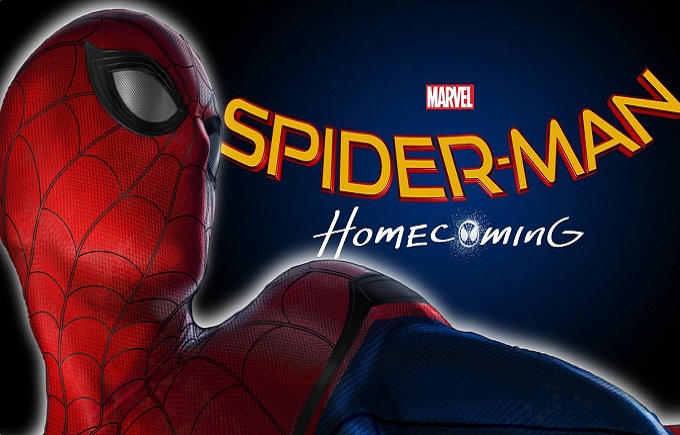
The Plot
Peter Parker adapts to life back at home in New York after his recent brush with the Avengers. Under Tony Stark’s mentorship he explores his new suit and amazing powers whilst struggling with typical teenage dramas. When a deadly new enemy appears Peter has to learn quickly what it really takes to be a superhero.
The Good
Comic fans will welcome the return of one of the most enduringly popular heroes in a fun and colourful adventure that sit closer to the original spirit of the comics than perhaps the darker Andrew Garfield version. In particular joining the combined Marvel universe is a big and exciting step for the franchise. Which yield the immediate benefit of allowing Robert Downey Jr to lend his swaggering ego/charm to the film. Building upon the playful chemistry established between the billionaire Avenger and wide eyed teenager in Civil War.
The ‘new’ Spider-Man suit is perhaps the closest yet to the iconic comic book design. This will be welcomed especially by more devoted comic book fans for whom such details matter almost above all else. Faithfulness such as this may also soften the blow of some of the new film’s more significant changes. Such as turning elderly Aunt May into a more youthfully attractive Marisa Tomei.
Michael Keaton continues his amazing career resurgence playing The Vulture. Keaton’s flare for wild eyed intensity and gravel voiced gravitas is a perfect fit for the role, making him genuinely dramatic and menacing by equal turn. It’s a huge asset for the film which offers audiences originality in action sequences and storytelling.
Overall the comedic tone and well-polished effects work makes this latest Spider-Man imagining an easy watch for faithful fans and younger audiences learning to love the character for the first time.
The Bad
Spider-Man Homecoming marks the third reboot for the web slinging hero in barely ten years. While Toby Maguire’s and Andrew Garfield’s versions both had their flaws they are still very familiar and much beloved by many fans. While Marvel clearly relishes having a guiding hand in the franchise at last, in truth the five previous Spider-Man films have narrowed the available territory for the new series. As a result most of Spider-Man’s familiar villains couldn’t be reused so quickly. While the film and Michael Keaton does a great job at turning one of the comic’s least plausible character The Vulture into something believably menacing, it’s hard to ignore noticing the absence of more familiar threats.
Likewise faced with the awkward reality of having to rehash Spider-Man’s origin story yet again the film simply chooses to avoid that obligation entirely. There’s no flashback scene explaining the origin of Peter’s amazing abilities and no lectures from Uncle Ben about great power and responsibility.
No doubt many audiences may be relieved to bypass this apparently redundant storytelling and merely to proceed on the basis that by now everyone knows who Spider-Man is and how he became the web crawling hero. Unfortunately though it means that this ‘new’ Spider-Man has no clear identity. Basic questions about his origin remain entirely unanswered, which feels even stranger after an entire standalone film than it did after his rushed introduction in Captain America Civil War.
Tom Holland is the most legitimately adolescent actor yet to be given the chance to play Peter Parker. While the young brit does a good job at mastering the American accent and Spidey’s glib wit, he treads a fine line. At times he threatens to be even more breathless and smug than Andrew Garfield was. The problem with making Peter Parker an actual tween is that you’re left with an occasionally immature superhero who’s still finding his feet.
The Ugly truth
Spider-Man Homecoming benefits from the sensible guiding hand of Marvel studios, allowing Sony to finally deliver a big screen version which integrates into the existing Marvel cinematic universe. Though the film gets much right and succeeds in distancing itself from the five previous films some of those changes will yet again be divisive for fans and leave them wondering why Spidey needed to be rebooted again so soon.
The House Review
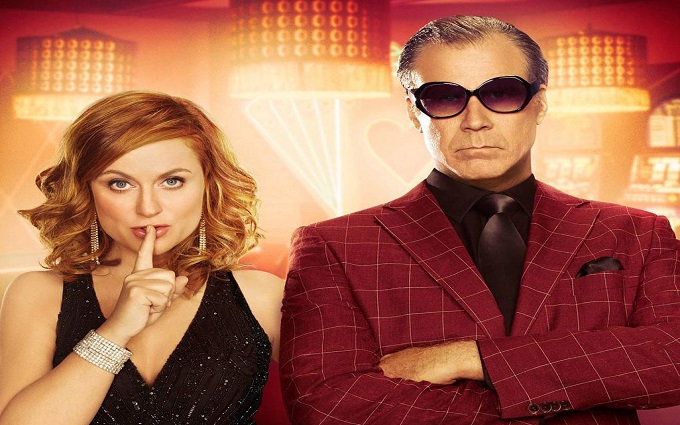
The Plot
When their college bound daughter misses out on a much needed scholarship a mild mannered suburban couple resorts to opening an underground casino to raise the cash they need to pay her tuition fees. But the surprising success of the venture soon finds them spiralling out of control and coming into conflict with the local authorities and genuine crime lords.
The Good
Will Ferrell and Amy Poehler are both vastly popular comic stars in their own right and they make for a well-balanced combination as the hapless couple slowly morphing from sensible suburbanites to power mad gangster impersonators. The script plays steadily into Ferrell’s flare for both shouting hysterics and deluded self-confidence. Likewise Amy Poehler clearly relishes flipping between sensible housewife mode and a pot addicted pyromaniac crime lord.
Existing fans of both stars will find quite a bit to enjoy in a film that offers a fairly steady stream of increasingly silly shenanigans that combine’s low brow one liners with occasional bouts of madcap action.
Jason Mantzoukas best known for countless scene stealing supporting roles works well as the film’s third wheel, playing the gambling addict friend who enthusiastically steers the duo from one disaster to the next. He spars well with both Ferell and Poehler keeping things from becoming too monotonous as a mere two hander.
Though at times the film flirts with becoming a more cliché mafia parody thankfully it never quite slides too far down that painfully overdone route. The film seems self-aware enough to at least ensure it doesn’t solely rely on lazy ‘Casino’ and ‘Goodfellas’ references.
The Bad
The House is fairly predictable as it treads comfortably familiar ground for its well known leads. Faint hearted audiences may find some of the films more surprisingly blood soaked set pieces makes for uncomfortable viewing. Likewise those that are usually left unamused by Ferrell’s trademark hysterics won’t find anything to change their mind in this performance. It lacks the quotable genius of Ferrell’s more memorable work and the film largely blends instantly into his increasingly generic back catalogue. Honestly the film’s characters and antics would perhaps have felt more at home in a straight to DVD offering or a prolonged SNL skit.
It’s worth noting as is so often the case, the official trailer largely squanders most of the films funniest moments, so if you are likely to head to cinemas avoid watching this first if you can.
The Ugly Truth
The House is an easy watch and a mostly satisfying guilty pleasure. Ferrell and Poehler keep admittedly generic material watchable due to a combined charisma and earnest enthusiasm.
Review by Russell Nelson
Despicable Me 3 Review
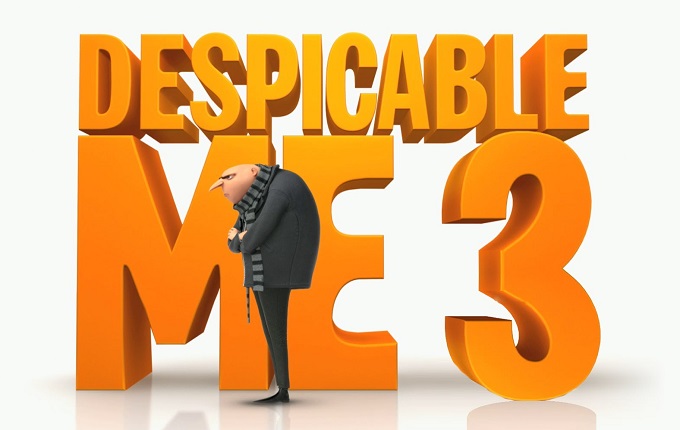
The Plot
Reformed supervillain Gru finds his new life as a hero thrown into turmoil thanks to a new adversary Balthazaar Bratt and the discovery that he has a long lost twin brother Dru. Meanwhile his loyal Minions question their place in Gru’s crime free adventures and his new wife Lucy comes to terms with being a mom to their adorable adoptive daughters.
The Good
Despicable Me perfectly combines the key elements of classic children’s entertainment. The absurdly popular Minions provide silly slapstick humour, an infectious soundtrack propels colourfully inventive action set pieces and Gru and his girls deliver a genuinely emotional message about ‘family’. It’s an increasingly well practiced formula which allows the forth film in the ever growing franchise to largely match audiences high expectations.
Steve Carrell slips effortlessly back into his vaguely eastern European drawl as criminal mastermind turned family man Gru. The Office star also manages to find enough vocal variety to play Gru’s flamboyant brother Dru as well, giving distinctive personalities to the Gru-some twosome as they bicker and bond.
Kristen Wiig clearly delights in returning as super-agent Lucy, giving her quest to become a ‘super mom’ a perfect balance of humour and heart. South Park co-creator Trey Parker is also a great fit for new villain, the 80s obsessed Balthazaar Bratt. It’s a fun character that lends the film an excuse for plenty of playful action and continues the fine villainous pedigree of the series.
In truth though it’s Nev Scharrell as the adorably unicorn obsessed Agnes who shamelessly steals every scene she’s in. It’s her endearingly wide eyed glee that best capture the true spirit of the franchise, perhaps even more than the irrepressible Minions.
While the Minions are of course still a constant presence, Despicable Me 3 wisely avoids being too overly reliant on them. Having had a whole spin off film to themselves this new sequel uses them a little more sparingly, helping to further preserve their unique charm.
Overall Despicable Me 3 is a worthy continuation of the series and packed with a near perfect balance of humour, heart and cartoon magic.
The Bad
The stunning box office success of the original Despicable Me made sequels and spin-offs absolutely inevitable. While countless children still can’t get enough, some parents might be suffering from a little bit of Minions overload. Especially after the recent spin off movie focussing shamelessly on the banana loving gibberish speaking sidekicks.
Given how perfectly resolved the plots of the first two Despicable Me films were, some cynics may also have wondered whether or not the never-ending series is merely being prolonged to facilitate the vastly lucrative burst of Minions merchandise that accompanies each new release.
Though there’s undeniable a commercial incentive for the studio to keep going, thankfully there’s still enough depth and sincerity in these increasingly beloved characters to deliver a deserved continuation of their stories.
The Ugly Truth
Despicable Me 3 is a warmly fun addition to a franchise that knows exactly what it’s doing. Capturing all the elements which have made the previous films such a crowd pleasing success guarantees that fans of all ages will leave the cinema just as happy this time around.
Review by Russell Nelson
Nobody Speak : Trails Of The Free Press Review
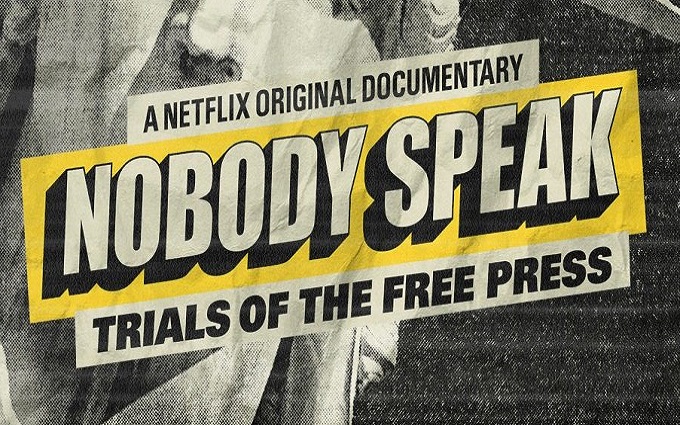
The Plot
A Netflix original documentary exploring Hulk Hogan’s successful $140 million sex tape lawsuit of celebrity gossip website Gawker and the supposed threat to free speech posed by Billionaires and the Donald Trump presidency.
The Good
Although from its title this documentary is clearly crafted to promote a very specific agenda, amongst its heavy editorial bias there’s enough raw information and extensive access to allow audiences to learn much about principal figures on both sides of the high profile Hogan legal drama. Lawyers, journalists and public figures all touch upon a number of important issues in their various testimonies even if the film inevitably then drifts back to its evil billionaires theme.
The Bad
The film’s attempts to sustain a credible narrative that American free speech and the entire global industry of professional journalism is somehow at urgent risk of dire destruction by sinister billionaires is patently absurd and transparently self-serving. Listening to the former staff of a notoriously tasteless celebrity gossip site and a regional newspaper shamelessly self-aggrandise themselves as heroic victims against totalitarian oppression is at least fascinating viewing.
Sadly the film mostly squanders the opportunity to truly explore the complex legal and social issues surrounding the innate conflict between freedom of speech and privacy in an increasingly digital world. Instead the film choses to make billionaire boogeymen the overwhelming focus of its badly lopsided editorial drive.
The fact that tech billionaire Peter Thiel helped finance Hogan’s legal costs due to his own long standing objection to the type of journalism Gawker represented isn’t the sensational smoking gun the filmmakers clearly imagine it to be. It’s not illegal or unethical and it’s ultimately entirely irrelevant to the legitimate legal process that lead to Gawker being successfully sued for recklessly and stubbornly publishing a ‘sex tape’ obtained under questionable circumstances.
What hotel Hogan’s lawyers stayed at or who paid for their room is meaningless trivia that has absolutely nothing to do with hysterically proposed concepts of a ‘broken legal system’ and the ‘death of fee speech’.
Likewise Hogan’s successful lawsuit against Gawker has absolutely nothing to do with the purchase of a regional Las Vegas newspaper by a wealthy family or hypothetical fears surrounding the Trump presidency. The film tries desperately to tie these three unrelated events together in a portrait of billionaires dangerously stifling media scrutiny.
What the film deliberately chooses to ignore is that a digital world where information can be instantly disseminated globally without cost or censorship of any kind is both an indestructible guarantee of free speech and ironically the only real threat to print and broadcast journalism. A world where people communicate without borders sharing primary audio-visual materials is one in which the importance of traditional media institutions is vastly diminished if not entirely irrelevant.
What’s actually interesting about the Gawker case is how it represents the inevitable conflict between current legal systems, established social norms and the mostly lawless ‘wild west’ of our online lives. Where those new lines in the sand are drawn between free expression and personal privacy are a challenge for the judiciary, journalists and society as a whole. Important practical questions that can’t be resolved merely by being ignored or by attempting to further vilify the wealthy elite.
The Ugly Truth
Nobody Speak is a transparently one sided exploration of some genuinely interesting subject matter. It’s just a shame the filmmakers chose to use such extensive source material to merely pander to populist loathing for the wealthy ‘1%’ rather than actually address the real challenges facing journalism and the legal system in a digital world.
Review by Russell Nelson